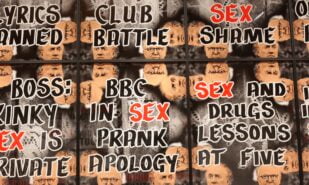The United Kingdom is ready to send the first flights to Rwanda, where dozens of rather charming houses are being built in Kigali to accommodate the new arrivals. This migration scheme was developed by Rishi Sunak’s government to address the backlog of tens of thousands of asylum seekers who cannot be returned to countries deemed unsafe. The last obstacle has been removed: the tribunal for war crimes in Rwanda, established to bring justice for the atrocities during the 1994 genocide, has completed its mission.
This milestone marks the end of a gruelling process of holding accountable those responsible for the deaths of more than 800,000 Rwandans from the Tutsi community. In a videoconference with the remaining participants, Prosecutor Serge Brammertz and leaders of the fugitive tracking team, Ewan Brown and Kevin Hughes, agreed that the last two fugitives have been confirmed dead. Thus, a chapter in the 29-year history of the tribunal was effectively closed.
Initially, the tribunal was tasked with finding 92 individuals accused of involvement in the genocide. The last on the list were Charles Sikubwabo and a restaurateur known only by the pseudonym Ryandikayo. Both were implicated in the mass killings of Tutsis orchestrated by the Hutu militia group “Interahamwe” in Rwanda’s Kibuye Prefecture.
The International Criminal Tribunal for Rwanda (ICTR) became part of a broader justice experiment, beginning with the similar tribunal for the former Yugoslavia (ICTY) in 1993. Both bodies were established by the United Nations Security Council. These institutions set a new precedent in international law, demonstrating that justice for mass atrocities is achievable, has no statute of limitations, and does not depend on where the perpetrators are hiding.
In 2010, as the missions of both bodies neared completion, they were merged into the “International Residual Mechanism for Criminal Tribunals.” By 2011, the ICTY reported that every accused person (161 in total) had been found and brought to justice. However, the ICTR continued its work. In 2016, Brammertz became the prosecutor for the “Residual Mechanism” and created a new team to track down the remaining Rwandan fugitives with special “hunters.” The team focused on the last eight Rwandan suspects, eventually narrowing their efforts to Sikubwabo and Ryandikayo.
Sikubwabo, a former mayor, organised one of the most horrific massacres during the genocide in Mugonero, where 12,000 Tutsis—men, women, and children—were killed. Ryandikayo, a restaurant manager and Sikubwabo’s accomplice, was equally ruthless: he personally participated in brutal killings. After the 100-day genocide ended and the Hutu military regime fell, both fled Rwanda. Sikubwabo moved through Central Africa, eventually reaching Chad, while Ryandikayo ended up in Congo. For many years, their whereabouts remained unknown, with friends and relatives claiming they were dead. Now, the “hunters” have found evidence of the suspects’ deaths: they gathered detailed interviews, including an eyewitness account of Sikubwabo’s burial in Chad, and information from open sources.
The successful conclusion of these cases underscores the significance of such tribunals. The investigation restored historical truth about the genocide. The precedent set by the ICTY and ICTR led to the establishment of the International Criminal Court (ICC) in 2002. Despite its noble goal—bringing fugitive dictators and war criminals to justice—the ICC has faced numerous challenges, including a lack of support from the US, Russia, and China.
Now that the tribunal’s mission is officially accomplished, Rwandan authorities will have to continue the work of tracking down more than a thousand lesser-known war crime suspects. Brammertz, Brown, and Hughes have already begun assisting Rwanda’s Attorney General. According to Brammertz, their team has already found evidence that some criminals are hiding under false identities in third countries, with negotiations for deportation already underway.
The conclusion of the Rwanda tribunal’s work marks the end of an era in global justice, demonstrating the possibility and importance of holding perpetrators of the most serious crimes—crimes against humanity—accountable. As Brammertz said, “In a world where international justice is really not doing well, it is a good feeling for us to be able to say: mission accomplished.”
It should be noted that the “Safety of Rwanda” bill, under which the UK plans to deport all illegal immigrants, was passed a month ago. Nonetheless, the country still ranks only 88th out of 163 in the “Global Peace Index”—a safety ranking that considers factors such as levels of violence and crime. Furthermore, according to reports from Amnesty International and Human Rights Watch, Rwanda has issues with freedom of expression, religion, the rightto a fair trial, and conditions for detainees, refugees, and asylum seekers. Therefore, despite the completion of extensive work to restore historical justice and the official recognition of Rwanda as a safe country, the situation can hardly be considered straightforward.




